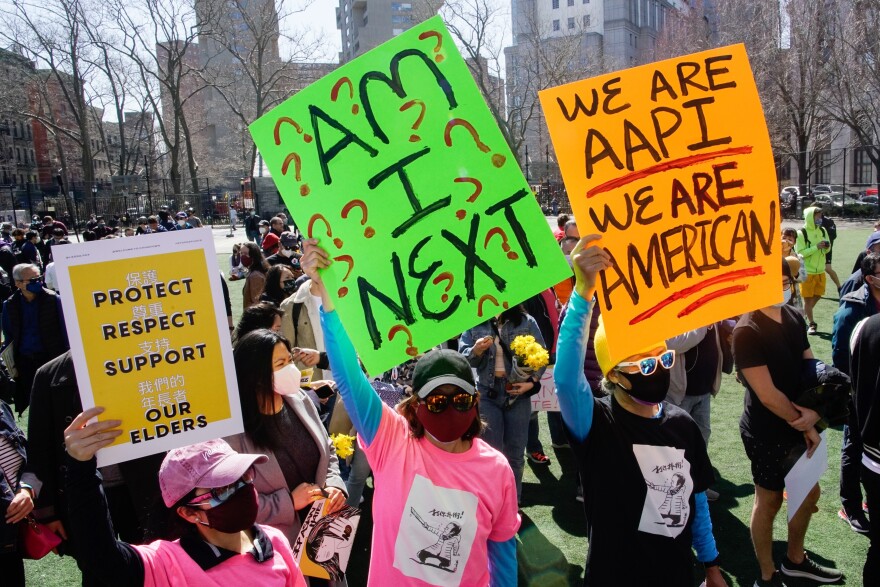The investigation continues into last week’s string of shootings in Atlanta, which killed eight people, six of whom were of Asian descent. Those killings underscore a spike in anti-Asian violence and rhetoric that has accompanied the COVID-19 pandemic.
The Columbus Division of Police say they haven’t had a single case of a hate crime directed at the AAPI, or Asian American and Pacific Islander, community since the pandemic began.
That lack of documented cases may not be a good thing, though. State Sen. Tina Maharath (D-Canal Winchester) says the explanation may be lack of reporting. Maharath, who is of Laotian descent, says her office has fielded complaints from people all over the state.
“When I ask them if they’ve reached out to any law enforcement, or just any one of authority outside of me, they say no,” Maharath says. “And it’s because they don’t see people who look like them, who act like them in law enforcement. They see more hate and more racism.”
For their part, Columbus Police acknowledge it is possible that incidents are going unreported.
Sofialyn Durusan works in the youth department at Asian American Community Services, and she agrees the lack of cases is likely stems from a lack of reporting. She says she and her colleagues experience discrimination regularly.
“So when we went to the grocery store, people would look at us and then they would bring out sanitizer and sanitize before serving us, and we were like, 'Oh, this is a little weird,'” she says. “And then once it started happening to a handful of us, we were like, 'Oh this is a repeated pattern of microagressions.'”
When it comes to physical violence or vandalism, Durusan hasn’t heard of any examples in Columbus. She says cases of verbal abuse or slurs are more likely, but again, AASC hasn't fielded complaints about specific incidents she can point out.
According to U.S. Census estimates, people of Asian descent make up about 5% of Columbus' population. And with the AAPI community spread throughout the city, rather than concentrated in a specific area, Durusan suggests anti-Asian racism doesn’t have a specific place to latch on to.
Meanwhile, Maharath has filed a measure along with state Sen. Niraj Antani (R-Miamisburg) to establish a state commission for AAPI affairs. Maharath says that group could act as a sort of clearing house for reports of discrimination, support public education and recommend legislation
“This commission would gather whatever data we have and disseminate that information that concerns the AAPI community, and it will stimulate all this public awareness and advocacy of the AAPI community through education,” Maharath said during a recent appearance on WOSU's All Sides With Ann Fisher.
Durusan says AASC is going to start submitting complaints to the group Stop AAPI Hate. The organization has collected reports of nearly 3,800 incidents of hate directed at the AAPI community—40 of which come from somewhere in Ohio.
Despite lingering mistrust, Durusan also encourages people to report incidents to the police.
“I know it’s still scary, even I’m still hesitant on it,” Durusan says, “But trust the system, because that’s as much as we can do on our end. As long as we’re doing that, it’s not—we’re doing the right thing.”






